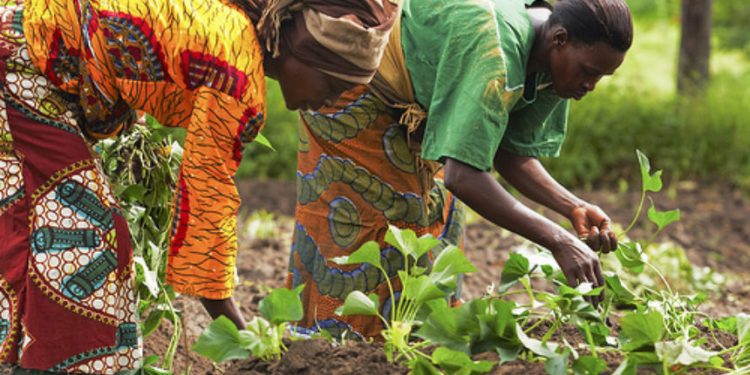The Executive Director, Agricultural and Rural Management Training Institute (ARMTI), Dr Olufemi Oladunni has called for concerted efforts among relevant stakeholders to end discrimination against female farmers, with the aim of attaining the Sustainable Development Goals (SDGs).
Dr. Oladunni said this while delivering a lecture during a workshop for rural farmers with the theme “Scaling-up Lifelong Learning for Farmers (L3F) in Nigeria” organized by ARMTI and sponsored by the Commonwealth of Learning.
Oladunni, who was represented by Dr Adeola Aremu, a faculty member, suggested that the same opportunity should be given to both genders at all times.
He advocated for women’s involvement in the decision-making in Gender-responsive strategies for the attainment of SDG.
Also, Prof. Olanike Deji, Lecturer in the Department of Agricultural Extension and Rural Development at the Obafemi Awolowo University (OAU), Ile-Ife, appealed that rural women should be given significant attention and empowered to engage in farming.
Prof Deji, who identified family farmers, rural women and youths as the major workforce in agriculture, stressed that empowering and engaging women in farming would help to achieve food security in the country.
“The three major workforce in agriculture that must be an important target of every programme are: small-scale family farmers, community rural women farmers and the youths. These three workforces are germane to achieving food security; they are major force in agriculture and agriculture value chain; they are the one that takes farm produce from level of production to the table of consumers.
“They are the majority of actors, but unfortunately, especially women are at the disadvantages end when it comes to access to resources, capacity building, recognition of their efforts, women are usually looked down upon,” she added.
On his part, Prof. Adeolu Ayanwale, former Head of Agricultural Economics Department, Faculty of Agriculture tasked the government to include women and youths in agricultural programme and ensure inclusiveness.
Ayanwale noted that many of the youths “are out of school, dwelling in urban areas, mostly unemployed, but not interested in farming despite a lot of potentials in the farm. There are a lot of potentials in using lifelong farming for farmers to ensure their inclusiveness. Youths and women can be included in the agricultural programme of the government.”
He advised farmers to take interest in lifelong learning “so that at the end of the day, everyone will highly benefit.”
Earlier, Prof. Adebayo Akinola, Head of Department of Agricultural Economics, OAU, said the programme was organised to bring together farmers, learning institutions and banks to facilitate learning for development in the rural area.
According to him, the workshop will empower vulnerable farmers and their families on skills development, increase productivity, food security and educate agricultural communities on socio-economic constraints.
He assured the participants that lifelong learning for farmers would improve their incomes through quality produce and eradicate poverty in the rural area.
“This makes it an inevitable tool for rural community development and a means for the achievement of the Millennium Development Goals to eradicate hunger and poverty,” Akinola said.

